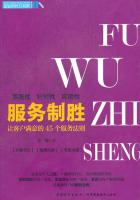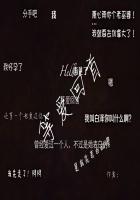In composite substances we find form and matter, as in man there are soul and body. We cannot say, however, that either of these is the essence of the thing. That matter alone is not the essence of the thing is clear, for it is through its essence that a thing is knowable and is placed in a species or genus. But matter is not a principle of cognition; nor is anything determined to a genus or species according to its matter but rather according to what something is in act. Nor is form alone the essence of a composite thing, however much certain people may try to assert this.
From what has been said, it is clear that the essence is that which is signified by the definition of the thing. The definition of a natural substance, however, contains not only form but also matter; otherwise, the definitions of natural things and mathematical ones would not differ. Nor can it be said that matter is placed in the definition of a natural substance as something added to the essence or as some being beyond the essence of the thing, for that type of definition is more proper to accidents, which do not have a perfect essence and which include in their definitions a subject beyond their own genus. Therefore, the essence clearly comprises both matter and form.
Nor can it be said that essence signifies the relation between the matter and the form or something superadded to these, for then the essence would of necessity be an accident and extraneous to the thing, and the thing would not be known through its essence, contrary to what pertains to an essence. Through the form, surely, which is the act of the matter, the matter is made a being in act and a certain kind of thing. Thus, something that supervenes does not give to the matter existence in act simply, but rather existence in act in a certain way, just as accidents do, as when whiteness makes something actually white. Hence, when such a form is acquired, we do not say that the thing is generated simply but only in a certain way.
The only possibility, therefore, is that the term essence, used with respect to composite substances, signifies that which is composed of matter and form. This conclusion is consistent with what Boethius says in his commentary on the Categories , namely, that ousia signifies what is composite; ousia , of course, is for the Greeks what essence is for us, as Boethius himself says in his book De Persona et Duabus Naturis . [[3]] Avicenna even says, Metaphysicae V, cap. 5, that the quiddity of a composite substance is the very composition of the form and the matter. And commenting on Book VII of Aristotle's Metaphysicae , the Commentator says, "The nature that species in generable things have is something in the middle; that is, it is composed of matter and form." Metaphysicae VII, com. 27.
Moreover, reason supports this view, for the existence of a composite substance is neither form alone nor matter alone but is rather composed of these.
The essence is that according to which the thing is said to exist; hence, it is right that the essence by which a thing is denominated a being is neither form alone not matter alone but both, albeit that existence of this kind is caused by the form and not by the matter. Similarly, we see that in other things that are constituted from many principles, the thing is not denominated from just one or the other of the principles but rather from that which embraces both. Thus, with respect to flavors, sweetness is caused by the action of a warm animal body digesting what is wet, and albeit that in this way warmth is the cause of the sweetness, nevertheless a body is not called sweet by reason of the warmth, but rather by reason of the flavor, which embraces both the warmth and the wetness.
But because matter is the principle of individuation, it would perhaps seem to follow that essence, which embraces in itself simultaneously both form and matter, is merely particular and not universal. From this it would follow that universals have no definitions, assuming that essence is what is signified by the definition. Thus, we must point out that matter understood in the way we have thus far understood it is not the principle of individuation;only signate matter is the principle of individuation. I call signate matter matter considered under determinate dimensions. Signate matter is not included in the definition of man as man, but signate matter would be included in the definition of Socrates if Socrates had a definition. In the definition of man, however, is included non-signate matter: in the definition of man we do not include this bone and this flesh but only bone and flesh absolutely, which are the non-signate matter of man.
Hence, the essence of man and the essence of Socrates do not differ except as the signate differs from the non-signate, and so the Commentator says, in Metaphysicae VII, com. 20, "Socrates is nothing other than animality and rationality, which are his quiddity." Similarly, the essence of a genus and the essence of a species differ as signate from non-signate, although in the case of genus and species a different mode of designation is used with respect to both. For, the designation of the individual with respect to the species is through matter determined by dimensions, while the designation of the species with respect to the genus is through the constitutive difference, which is taken from the form of the thing. This determination or designation, however, which is made in the species with respect to the genus, is not through something that exists in the essence of the species but in no way exists in the essence of the genus. On the contrary, whatever is in the species is also in the genus as undetermined.
If animal were not all that man is but rather only a part of him, then animal would not be predicated of man, for no integral part is predicated of its whole.















